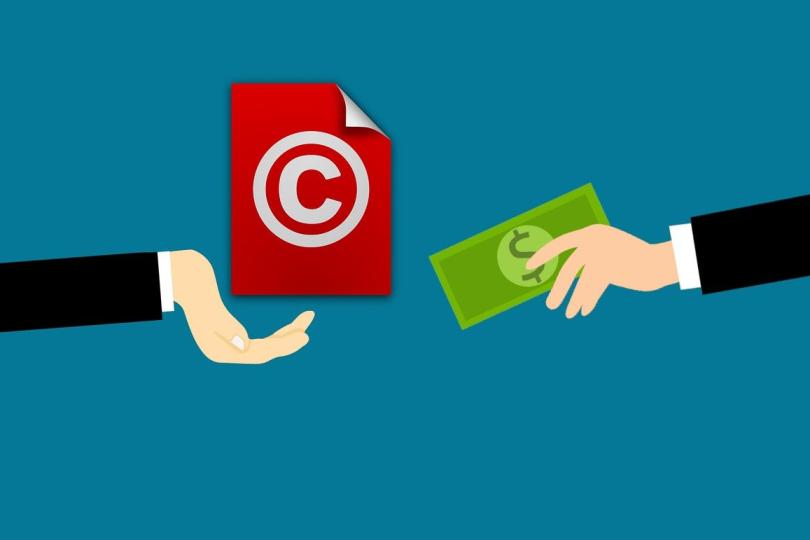Using Google Images for your calendar postings? Please stop.

I actually started this article by having ChatGPT write the bulk of it for me (see below for that text). The irony of that - in relation to the title of this article - was not lost on me.
Let's keep this short and sweet.
Minnesota Playlist was recently fined by ImageRights for the use of a copyrighted image in a calendar posting from 2020.
This sucks.
It sucks for Playlist, and it sucks that I had to send an invoice to the company that posted the event in order to recoup that fee.
The image was likely pulled from a google image search for snowflakes and just added to the calendar posting.
Please don't do this. It is going to end poorly, eventually. Companies like ImageRights do ONE thing: they use software to scour the internet for use of their client's images and then they fine those companies. It has never been easier for a company like ImageRights to recoup costs for their clients.
Per our Copyright page, you as the user are responsible for having the rights to any images you post on Playlist.
So do the right thing, take the time to pay for an image you want and get the rights. OR utilize a royalty free image like the ones found at pixabay.com and provide credit in the description of your show on the calendar posting. As we are doing here for the image above.
Image by Mohamed Hassan from Pixabay
I was recently at a performance and there was a ton of music that was being used in the production. I was struck that as an industry we rail against the heavens when actors, writers, directors, technicians, etc aren't paid for their time, or when they are asked to work for 'exposure'. And yet, how many companies don't pay music rights, how many productions use music that they don't have the rights to? Maybe this show did have the rights, or the venue pays the annual rights fee to utilize a bunch of music. Even still, we can do better. If we want to be paid for our work, we should budget to do the same for those artists who make images and sound that gets used in marketing or in productions.
Chat GPT generated article
Using Google Images for Your Calendar Posting? Please Stop!
In the age of digital communication and social media, the ease of accessing and sharing content has become second nature. However, a concerning trend has emerged that not only jeopardizes the livelihood of artists but also poses risks for the hosting websites – the unauthorized use of copyrighted images in posts.
The Ubiquity of Google Images
Google Images, with its vast repository of pictures, has become a go-to source for many individuals and organizations searching for eye-catching visuals to accompany their online content. The convenience of a quick search and download may seem tempting, but the implications of using copyrighted images without permission are far-reaching.
The Impact on Artists
Artists, whether photographers, illustrators, or graphic designers, invest time, skill, and resources in creating compelling visuals. The unauthorized use of their work diminishes the value of their efforts and deprives them of potential income. In the digital age, where content creators rely on licensing and royalties for their livelihood, the unauthorized use of their work poses a significant threat.
Imagine a scenario where a photographer's captivating image is used across various calendar postings without proper attribution or compensation. This not only devalues the original work but also undermines the incentive for artists to continue producing high-quality content.
Legal Implications
Beyond ethical concerns, the use of copyrighted images without permission can have legal consequences. Copyright holders have the right to protect their work, and unauthorized use may result in legal action, including demands for damages. Hosting websites that fail to enforce copyright policies may find themselves facing legal challenges, tarnishing their reputation and potentially leading to financial penalties.
Hurting the Hosting Website
While individuals may not always be fully aware of the legal and ethical implications of using copyrighted images, hosting websites bear a responsibility to educate their users and enforce policies to protect intellectual property. Failure to do so not only exposes them to legal risks but can also harm their relationship with content creators and the overall quality of content on their platform.
The Importance of Ethical Practices
It is crucial for individuals and organizations to adopt ethical practices when sourcing images for online content. By respecting copyright laws and obtaining proper permissions, users contribute to a fair and sustainable creative ecosystem. Websites, in turn, must actively educate users about copyright and enforce policies to ensure a responsible and legal use of images.
Conclusion
In the digital landscape, where information is readily available, it is essential to be mindful of the impact our actions have on content creators and hosting platforms. The unauthorized use of copyrighted images not only hurts artists financially but also places hosting websites at legal and ethical crossroads. Let us collectively strive to create and share content responsibly, respecting the creative efforts of those who contribute to the vibrant online world we all enjoy.




